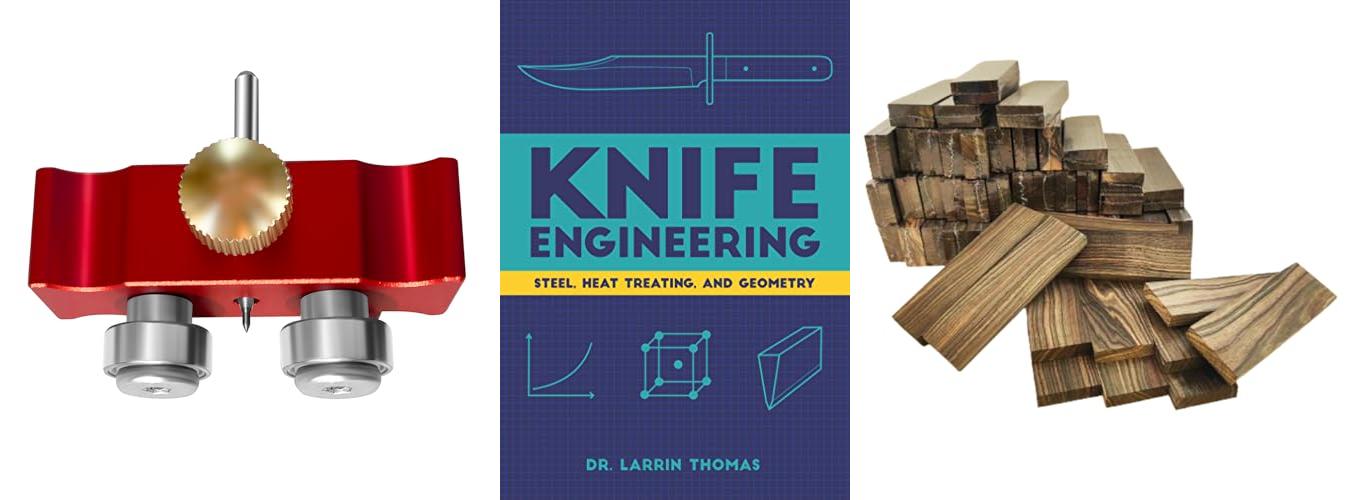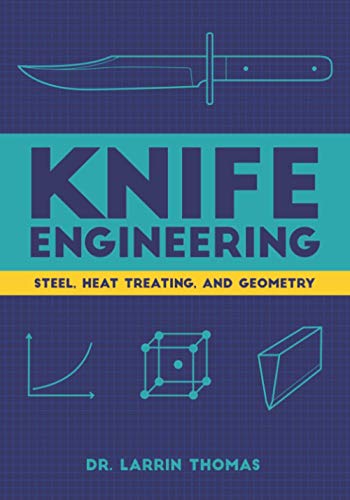Imagine holding a tool that feels like an extension of your own hand, perfectly balanced and razor-sharp. For centuries, skilled artisans have poured their passion and precision into crafting knives that do more than just cut; they inspire. But in today’s world, finding that perfect knife maker can feel like searching for a needle in a haystack. So many choices exist, and it’s easy to get overwhelmed when you want a knife that’s not just functional, but a true work of art.
This is where we come in. We understand the frustration of sifting through endless websites and reviews, trying to figure out who truly has the skill and dedication to create a knife that will last a lifetime. You want to know you’re investing in quality, in craftsmanship, and in a piece that will bring you joy every time you use it.
By diving into the world of knife makers, you’ll discover what sets the truly exceptional apart. We’ll guide you through the key elements that matter, from the materials they use to the techniques they employ. Get ready to learn how to spot genuine talent and find the knife maker who can bring your perfect blade to life. Let’s explore the craft!
Our Top 5 Knife Makers Recommendations at a Glance
Top 5 Knife Makers Detailed Reviews
1. JMSMSH 2 x 72 Knife Maker’s Edge Scribe and Center Line Scribe Set
Rating: 9.0/10
The JMSMSH 2 x 72 Knife Maker’s Edge Scribe and Center Line Scribe Set is a handy tool for makers. It helps you mark the center of your materials quickly and accurately. This set is designed to save you time and effort.
What We Like:
- It makes finding the center line easy and fast.
- The aluminum body is strong and lasts a long time.
- The red color looks good and helps you find it.
- The carbide tip marks steel bars up to 5/16 inch thick.
- It’s simple to use, just press and slide.
- It works for making knives and also for woodworking.
What Could Be Improved:
- The carbide tip is replaceable, but it’s good to know where to get more.
- While it marks annealed steel, it’s important to ensure your material is the right thickness.
This scribe set is a valuable addition to any workshop. It simplifies a common task, letting you focus on your craft.
2. Knife Engineering: Steel
Rating: 8.9/10
Knife Engineering: Steel, Heat Treating, and Geometry is a book that dives deep into how knives are made. It explains the science behind the materials and processes that make a good knife. If you’ve ever wondered why some knives are sharper or last longer than others, this book has the answers. It covers everything from the different types of steel used to the special ways they are heated and cooled. You’ll also learn about the shapes and angles that make a knife cut well.
What We Like:
- Explains complex topics in a clear way.
- Helps you understand the “why” behind knife design.
- Great for anyone interested in knives, from hobbyists to professionals.
- Provides valuable knowledge for anyone wanting to make or choose better knives.
What Could Be Improved:
- May be too technical for a complete beginner with no prior interest in metallurgy.
- Could benefit from more visual aids like diagrams or charts to illustrate certain concepts.
This book is a fantastic resource for anyone serious about understanding knife craftsmanship. It equips you with the knowledge to appreciate and even improve upon knife design.
3. Macassa Black Ebony Lumber Hardwood Burl Knives Handle Scales Knife Makers Material Exotic Wood DIY Tools 2Pcs Size: 3/8″ x 1 1/2″ x 5 1/8″ (+/- 1/16″)
Rating: 9.5/10
Looking for a truly special material for your next woodworking project? This Macassar Black Ebony Lumber Hardwood Burl is a fantastic choice for knife handles, DIY tools, and more. Sourced from Asia, this exotic wood is also called Golden Ebony because of its stunning black stripes over golden hues. Each piece is unique with its own special color and grain patterns. You might even find natural little quirks that make your creation one-of-a-kind.
What We Like:
- Unique Beauty: Every wood piece shows off different colors and grain, making your project stand out.
- Premium Quality: This Macassar Ebony is top-notch, perfect for both experienced crafters and beginners.
- Smooth Surface: The wood has a wonderfully smooth finish, ideal for small projects.
- Perfect Size: The dimensions are just right for creating knife handles, pens, or small boxes.
- Rare and Desired: Macassar Ebony is a special wood that’s not easy to find.
- Versatile Use: You can use it for many things like making jewelry boxes, picture frames, or even musical instruments.
What Could Be Improved:
- Requires Sharp Tools: Because the wood is very dense, you’ll need sharp tools to work with it easily.
- Natural Imperfections: While these add character, some crafters might prefer perfectly flawless wood.
This exotic wood set provides a beautiful and high-quality material for your creative endeavors. You’ll love the rich look and feel it brings to any project.
4. 3 Pack 1 X 30 Inch Coarse
Rating: 8.6/10
Elevate your crafting and fabrication projects with this 3-pack of 1×30 inch non-woven sanding belts. This set provides a versatile range of grits – coarse 60 (brown), medium 120 (red), and fine 240 (blue) – to tackle everything from rough shaping to a polished finish. Designed for knife makers and metal fabricators, these belts are built to perform exceptionally on a variety of tasks.
What We Like:
- The multi-grit combination offers great flexibility for different sanding needs.
- These belts excel at deburring, cleaning, and blending, leaving smooth, perfect finishes.
- Premium, resin-bonded aluminum oxide on a durable nylon mesh ensures long-lasting and consistent sanding.
- The tightly designed interface prevents breakage and keeps your sander running smoothly.
- They work well on many materials like metal, wood, plastic, and synthetics.
What Could Be Improved:
- While versatile, the 1×30 inch size might limit compatibility with larger sanders.
- For very heavy-duty industrial use, even finer grits might be desired.
This sanding belt assortment is a valuable addition to any workshop, offering quality performance for a wide range of finishing tasks. You’ll appreciate the consistent results and durability these belts provide.
5. JMSMSH 2X72 Knife Maker’s Center Scribe
Rating: 8.5/10
The JMSMSH 2X72 Knife Maker’s Center Scribe is a handy tool for anyone making knives or working with wood. It helps you find the exact middle of your material quickly. This saves you time and effort, letting you get to the fun part of creating faster. It’s made with good materials and looks nice too!
What We Like:
- It’s easy to use. Just press and slide, and you get a perfect center mark.
- The aluminum body and stainless steel guide make it strong and last a long time.
- It can mark steel up to 1.5 inches thick, which is pretty thick!
- The carbide tip is adjustable and can be replaced, so you can keep using it for ages.
- The red color looks cool and makes it easy to spot in your workshop.
- It’s great for knife making and also works well for woodworking projects.
What Could Be Improved:
- While it’s simple, a beginner might need a moment to understand how to get the best mark.
- The carbide tip, though replaceable, could be slightly more robust for very heavy-duty, continuous use.
Overall, this scribe is a solid tool that makes marking centers a breeze. It’s a smart buy for makers who value precision and efficiency.
The Sharpest Guide: Choosing Your Perfect Knife Maker’s Tools
Picking the right tools for knife making is exciting! Whether you’re a seasoned pro or just starting, understanding what makes good equipment is important. This guide will help you find the best knife makers’ tools.
Key Features to Look For
When you shop for knife making tools, keep an eye out for a few important things.
Durability
Tools need to last. Look for items made from strong materials that won’t break easily. This means they can handle tough jobs.
Ergonomics
How the tool feels in your hand matters. Good ergonomics means the tool is comfortable to hold and use for long periods. This helps you work better and prevents your hands from getting tired.
Precision
Knife making needs accuracy. Tools should allow you to make precise cuts and shapes. This helps you create beautiful and functional knives.
Versatility
Can the tool do more than one job? Versatile tools save you money and space. They can be used for different steps in the knife making process.
Important Materials
The materials used in knife making tools greatly affect their performance and how long they last.
High-Carbon Steel
This is a common material for knife blades and many tools. High-carbon steel is strong and holds a sharp edge well. It’s great for things like files and chisels.
Hardwood
For handles on tools like files or mallets, hardwood is a good choice. It’s strong, comfortable, and gives you a good grip.
Diamond and Carbide
These super-hard materials are used for abrasives and cutting edges. They can shape even the toughest metals. Think of diamond grinding wheels or carbide burrs.
Factors That Improve or Reduce Quality
Some things make knife making tools better, while others can make them worse.
Heat Treatment
Proper heat treatment makes steel harder and stronger. This is very important for tools that need to cut or shape metal. Poor heat treatment can make a tool weak and dull quickly.
Sharpness and Edge Retention
A sharp tool makes work easier and safer. Tools that keep their sharp edge for a long time are high quality. Dull tools can slip and cause injuries.
Build Quality
Look at how well the tool is put together. Are there any loose parts? Is the finish smooth? Good build quality means the tool will last longer and work better.
Brand Reputation
Some brands are known for making excellent tools. Doing a little research on brands can help you find reliable equipment.
User Experience and Use Cases
How you use the tools and what you want to make will guide your choices.
Beginners
If you’re new to knife making, start with essential tools. A good set of files, a sturdy vise, and basic sharpening stones are great starting points. These allow you to learn the fundamentals.
Intermediate Makers
As you get more skilled, you might want specialized tools. This could include a belt grinder for shaping blades faster, or more advanced etching tools. These help you create more detailed designs.
Advanced Bladesmiths
Experienced makers often invest in power tools like forging hammers or induction forges. These tools help them work with larger pieces of metal and create complex blades.
Frequently Asked Questions (FAQ)
Q: What are the most important tools for a beginner knife maker?
A: For beginners, essential tools include a good vise, a set of metal files, sandpaper or sharpening stones, and safety gear like gloves and eye protection.
Q: How do I know if a steel is good for knife making?
A: Good knife-making steels are usually high-carbon steels. They can be hardened and tempered to hold a sharp edge and be tough. Look for steels like 1080, 1095, or O1 tool steel.
Q: What’s the difference between a file and a rasp?
A: Files have smaller, finer teeth that remove metal slowly and smoothly. Rasps have larger, coarser teeth that remove metal quickly. Files are better for precise shaping of knives.
Q: Should I buy power tools or hand tools first?
A: It’s usually best to start with good quality hand tools. They help you learn the basics of shaping and finishing. Power tools can be added later as you advance.
Q: How important is blade steel choice?
A: Blade steel choice is very important. It affects how sharp the knife can get, how long it stays sharp, and how strong it is. Different steels are good for different types of knives.
Q: What kind of safety gear do I need?
A: You absolutely need safety glasses or a face shield, sturdy gloves, and maybe an apron. Hearing protection is good if you use noisy tools.
Q: Can I use regular kitchen knives as a starting point?
A: While you can experiment with old kitchen knives, they aren’t ideal for learning proper knife making. Dedicated knife-making steel allows for better hardening and edge retention.
Q: How do I sharpen my tools?
A: You can sharpen tools using sharpening stones, diamond plates, or grinding wheels. The method depends on the tool and its material.
Q: What is a ‘temper’ in knife making?
A: Tempering is a heat treatment process that makes hardened steel less brittle. It increases the toughness of the blade.
Q: Where can I buy good knife making tools?
A: You can find good tools at specialty knife making supply stores, online retailers that focus on metalworking tools, and sometimes at well-stocked hardware stores.
In conclusion, every product has unique features and benefits. We hope this review helps you decide if it meets your needs. An informed choice ensures the best experience.
If you have any questions or feedback, please share them in the comments. Your input helps everyone. Thank you for reading.






